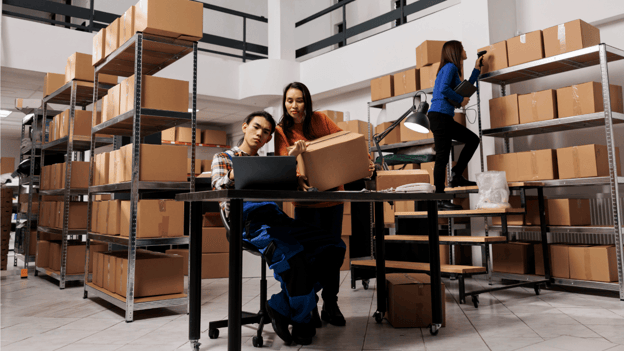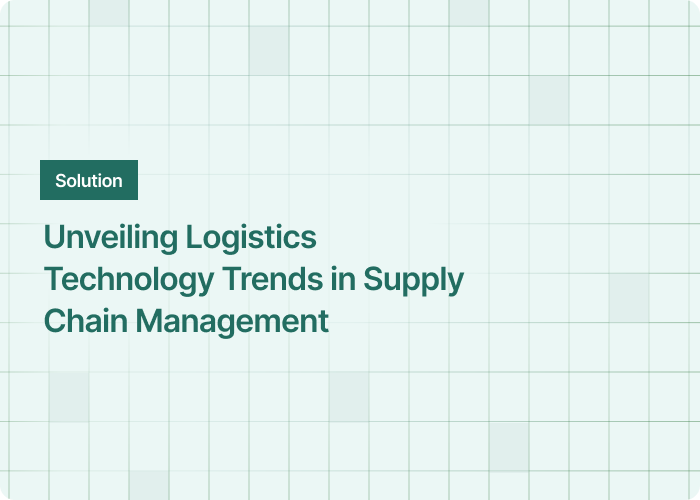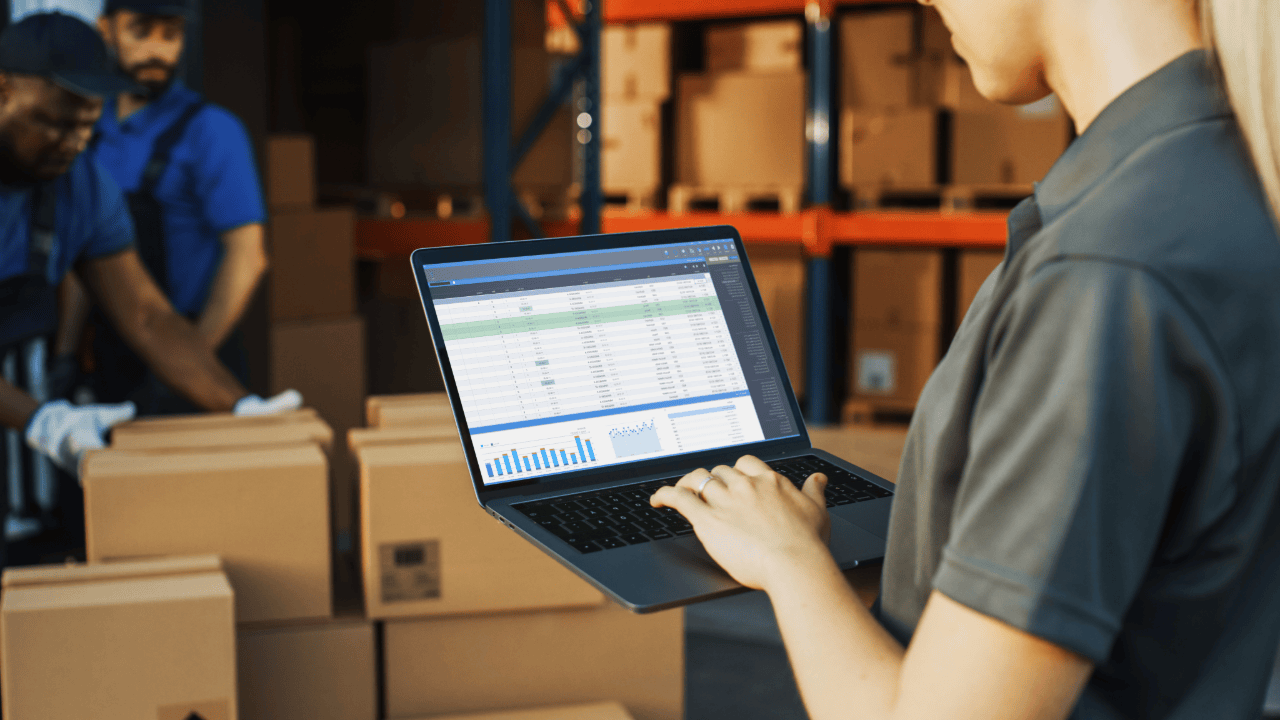
Introduction: Embracing Sustainable Logistics in Today’s World
In a world increasingly conscious of its environmental footprint, the logistics industry stands at a pivotal crossroads. The shift towards sustainable logistics is not just a fleeting trend but a fundamental change in how we think about moving goods in a responsible, eco-friendly manner.
Understanding the Shift Towards Sustainability in Logistics
The logistics sector, historically known for its significant environmental impact, is now pioneering innovative sustainable logistics practices. This shift is driven by a growing realization that integrating sustainability is crucial for long-term business viability and global well-being.
The Relevance of Sustainable Practices in the Logistics Industry
Embracing sustainable practices goes beyond reducing carbon emissions; it’s about reinventing logistics operations to be efficient, cost-effective, and environmentally responsible. This approach is rapidly becoming a benchmark for success in the industry, highlighting the importance of sustainable solutions in modern logistics.
In this evolving landscape, the commitment to logistics sustainability is not just an ethical choice but a strategic business decision, paving the way for a more sustainable and prosperous future.
The Importance of Sustainable Logistics
In the dynamic world of commerce, sustainable logistics plays a crucial role, offering far-reaching environmental and economic benefits. This section explores its significance in shaping both the planet’s health and a business’s success.
Environmental and Economic Impacts
Adopting sustainable practices in logistics and supply chain operations significantly reduces the carbon footprint and environmental impact of transportation and storage. It’s not just about being eco-friendly; these practices lead to cost reductions and improved supply chain efficiency. By minimizing waste and optimizing resource use, companies can significantly lower their carbon emissions while boosting operational efficiency.
Enhancing Brand Image and Customer Trust
In an era where consumers are increasingly environmentally conscious, integrating sustainable logistics services and sustainable packaging enhances a brand’s image. Customers are more likely to trust and stay loyal to companies that demonstrate environmental responsibility. This commitment not only helps in managing logistics operations more sustainably but also positions a brand as a leader in ethical business practices.
Embracing sustainable logistics is therefore not just a nod to environmental stewardship; it’s a strategic move towards holistic, responsible, and efficient business growth.

Five Sustainable Logistics Practices
Adopting sustainable practices in logistics is key to environmental and operational excellence. This section highlights two crucial practices that significantly contribute to a greener logistics landscape.
Optimizing Route Planning
Efficient route planning is essential in sustainable logistics. By optimizing transport routes, companies can reduce fuel consumption significantly. Advanced software tools enable precise tracking and management of delivery paths, ensuring the shortest and most efficient routes are chosen. This not only saves fuel but also reduces emissions, making it a pivotal aspect of sustainable logistics practices.
Investing in Eco-Friendly Packaging
Sustainable packaging is another vital practice in eco-friendly logistics. Utilizing recyclable or biodegradable materials minimizes environmental impact. It’s a proactive step in managing logistics operations sustainably, reducing waste and the carbon footprint of packaging processes. Investing in sustainable packaging reflects a commitment to environmental stewardship and operational efficiency, playing a significant role in modern logistics operations.
These practices not only benefit the environment but also enhance the efficiency and cost-effectiveness of logistics operations, making them essential for any company striving towards sustainability.
What’s the Importance of Sustainability in Logistics and Transport?
Sustainability in logistics and transport is pivotal for both environmental conservation and economic viability. This section delves into how sustainable practices contribute to reducing ecological impact and achieving long-term financial benefits.
Reducing Carbon Footprint
A primary goal of sustainable logistics is to lessen the carbon footprint of transport operations. This involves using alternative vehicle technologies, such as electric or gas engines, and optimizing fuel consumption through efficient transport routes. Emphasizing eco-friendly solutions, like lower carbon fuels and recycled materials, helps mitigate greenhouse gas emissions from traditional diesel trucks and fossil fuels.
Long-Term Cost Savings
Implementing sustainable practices leads to significant cost savings. Green logistics strategies, such as digital platform integration for route optimization and train freight over road transport, reduce energy usage and fuel costs. Additionally, focusing on sustainability minimizes expenses related to raw materials and last mile delivery emissions. These practices not only lower the ecological footprint but also enhance supply chain efficiency, proving financially advantageous in the long run.
Using Data for Greater Operational Visibility
The use of data in supply chain management is revolutionizing how companies operate, offering enhanced efficiency, cost-effectiveness, and customer satisfaction.
Data-Driven Decision Making
Companies like Amazon and Tesla have exemplified the power of data-driven supply chain management. Amazon, the world’s largest retailer, leverages data to optimize everything from supplier relationships to delivery logistics, ensuring efficient distribution directly from warehouses to consumers. Tesla, known for its innovative approach in the automotive sector, uses a vertically integrated supply chain complemented by a digital supply chain for firmware and algorithm updates. This approach allows these companies to reduce inefficiencies and stay ahead in their respective industries.
Improving Efficiency with Analytics
Data analytics in supply chain management encompasses various aspects, including sales data, inventory levels, transportation data, and more. By analyzing this data, companies can optimize inventory management, enhance transportation efficiency, and improve warehouse layouts. For example, real-time data analytics help in maintaining optimal inventory levels, reducing carrying costs, and ensuring product availability. In transportation, data-driven route planning and load optimization help in lowering fuel consumption and transportation costs.
The transformation brought about by data analytics in logistics and supply chain management is not just about having data but making it accessible, trustworthy, and actionable. This approach leads to informed decision-making, resulting in reduced lead times, operational costs, and improved customer service.
Companies leveraging data analytics effectively are setting new benchmarks in supply chain management, proving the immense value of data in enhancing operational visibility and efficiency.

Explore the Use of Alternative Vehicle and Fuel Technologies
The logistics industry is increasingly turning to alternative vehicle and fuel technologies to reduce environmental impact and improve efficiency. This section will explore the advancements and usage of electric and hybrid vehicles, as well as biofuel and hydrogen fuel options in logistics.
Electric and Hybrid Vehicles in Logistics
Electric and hybrid vehicles have made significant strides in logistics, offering a cleaner and more sustainable option compared to traditional gasoline and diesel vehicles. Companies like UPS have been pioneers in this area, with a history of testing electric vehicles dating back to the 1930s. UPS’s “Rolling Laboratory” initiative, for example, has expanded to include over 7,200 alternative-fuel and advanced-technology vehicles, demonstrating the viability and growth of electric and hybrid vehicles in the logistics sector. These advancements are particularly evident in medium-duty applications, where electric vehicles are ideal due to their regenerative braking capabilities and the operational model of logistics fleets (Parcel and Postal Technology International).
Biofuel and Hydrogen Fuel Options
Hydrogen fuels are emerging as a promising alternative for a climate-neutral future in logistics. They offer high energy content and can be produced from a large base source, making them a viable option for heavy transportation vehicles like trucks, trains, and potentially planes. Countries like the US, Japan, Germany, and China have already started deploying hydrogen-fueled cars and buses. The use of Hydrogen Enriched Compressed Natural Gas (H-CNG) is also being explored, with standards being set for safety evaluation and testing of vehicles propelled by hydrogen fuel cells (Logistics Insider).
Both electric/hybrid vehicles and hydrogen fuels represent significant advancements in the logistics industry, contributing to the reduction of greenhouse gas emissions and the move towards more sustainable and cost-effective operations. The ongoing development and adoption of these technologies will play a crucial role in shaping the future of sustainable logistics.
Reduce, Reuse, and Recycle
The concept of a circular economy is increasingly relevant in logistics, focusing on sustainability by minimizing waste and maximizing resource use. This section explores how implementing a circular economy and effective waste management strategies can revolutionize logistics.
Implementing a Circular Economy in Logistics
In a circular economy, the goal is to maintain materials and components in a sustainable cycle, extending their life and reducing resource consumption. This model challenges the traditional linear approach of “make-use-dispose.” In logistics, this means shifting from a linear system to a more complex one involving diverse return and introduction flows. Key activities include collecting, proofing, processing, and various forms of ‘Re-X’ (Recovery, Reuse, Repair, Refurbish, Remanufacture, Repurpose, Reduce, Recycle). These activities determine whether a product goes directly to the secondhand market, can be refurbished, or needs to be broken down into components for reinsertion into the supply chain (EY).
Waste Management Strategies
Effective waste management in logistics involves reverse logistics, which is integral to the circular economy. This process includes returning goods from the consumer to the point of origin for replacement, refurbishment, recycling, redistribution, or clean disposal. In some cases, it’s possible to extract and reuse useful organic materials. The circular economy’s focus on efficiency and productivity is seen as a key tool for sustainable economic growth, helping reduce emissions and preserve the natural environment. To expand the circular economy, comprehensive models like the Reverse Logistics Maturity Model developed by Deutsche Post DHL Group and the Ellen MacArthur Foundation’s Circular Economy 100 initiative are essential (DHL).
Top Tips for Being Sustainable
Sustainability in logistics is enhanced significantly through employee engagement and regular sustainability audits. These practices ensure that logistics companies operate more environmentally friendly and ethically.
Employee Engagement and Training
Employee engagement in sustainable practices is crucial for logistics companies. Training programs raise awareness about the environmental impacts of logistics activities and encourage employees to contribute innovative solutions. This engagement leads to behavioral changes and the effective implementation of green practices within the company, driving sustainable supply chains.
Regular Sustainability Audits
Conducting regular sustainability audits helps logistics companies assess their operations, set clear sustainability goals, and develop action plans with specific initiatives and timelines. These audits are vital in measuring and improving the environmental performance of logistics operations, including aspects like energy consumption, waste generation, and the use of sustainable materials.
Conclusion: The Future of Sustainable Logistics
The future of sustainable logistics is an integrated journey of innovation and environmental mindfulness. As we embrace eco-friendly practices, we are paving the way for a greener, more sustainable future. The commitment to sustainable logistics services, aimed at achieving environmental sustainability and becoming carbon-neutral, is reshaping the industry. This transformation is crucial not only for preserving our environment but also for fostering a new era of environmentally friendly logistics. The road ahead is challenging yet promising, leading us towards sustainable solutions that will benefit both the planet and future generations.


